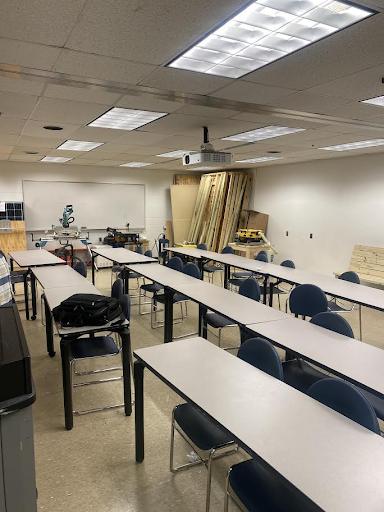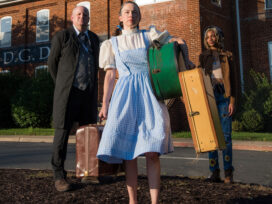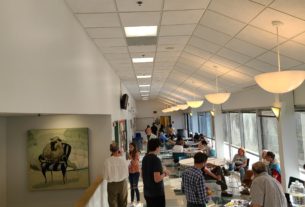
Exploring PVCC Workforce Classes
PVCC’s workforce services offer classes that provide skills that will help students find a good job and a good future to make good money. Classes are taught by instructors with industry knowledge and experience. The Stultz Center also provides opportunities for experiential learning. These opportunities include hundreds of classes and various credits that fall into different categories such as trades, manufacturing, and business.
Thomas Eanes, program manager of Workforce Services says, “PVCC Workforce Services offers a variety of classes and healthcare skilled trades, IT, welding, manufacturing, and agriculture. We offer both career development and life-long learning. In addition to our adult programs, we offer youth programming through our kids-college.”
According to the Workforce Schedule, these classes come in lengths of several months and several weeks including a deadline. Eanes says these class credits vary by program.
Eanes says, “The classes are a multi-faceted approach involving collaboration between program managers, classroom availability, course prerequisites and instructor availability.” Some of the programs also offer industry credentials.
An example for the types of classes offered from the workforce are welding & manufacturing classes. Welding & Machining Programs Specialist Scott Ishler teaches welding & manufacturing classes. Ishler’s classes use engine-driven welders and generators with power-tools that are plugged in.
Ishler says, “This is like we are at a construction site. We bring the equipment and trailers. Then we unload the contents and create the classroom.”
One of the welding students at the Stultz Center, Daniel Livengood says, “We have Miller multi-process suitcase welders that we use to teach wire fied welding processes to include flux core, mig and dual shield.”
Workforce services also offers classes in skilled trades. Intro to Construction is an introductory course that provides a good foundation for students and topics applicable to HVAC and trades including workplace safety, tool operation, and reading project blueprints.
Skilled Trades Programs Specialist Don Davis is an instructor that offers trade classes at both on-campus and at PVCC prison programs. Davis provides classes and encouragement to people that are incarcerated that are about to get released. He also teaches people at faith-based behavioral and addiction rehabilitation centers. Davis tries to understand students’ needs, he says, “I would ask them what their goals are and then that would help me determine how I can best help them.”
Davis also teaches students that don’t have English as their primary language by translating tests into different languages and giving a handbook in different language translations.
Over the course of teaching the classes, Davis spends at least 40 hours with each student and sometimes up to 160 hours. Due to another adjunct instructor of skilled trades, Sam Northington, the class also has access to tools such as table saws, mitre saws, thickness plainer, circular saws, drills.
Davis says, “We have a lot of fun in this class, and the students learn an incredible amount.” He explains, “In the course of my class, I teach them basic safety such as how to fill out a resume properly, teach them basic communication skills, and introduce them to hand and power tools. I introduce them to building plans and building materials, how to properly handle power tools and how to properly handle material as well as math skills you would need to work into the trade skills such as how to properly read a tape measure. A lot of people have no experience in this field whatsoever, so it truly is an introduction to construction.”
Davis also states, “We accept everyone, so there is no prerequisite to be a part of the program.”
Davis gives this as advice to workforce students, “Come on in! You will enjoy this class, we will hone your math skills. You’ll learn a tremendous amount about hand and power tools, including how to use them because we will build a project together.”






